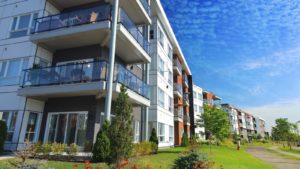In the current environment, having a strong and reliable Wi-Fi connection is crucial, particularly in multi-unit settings like apartments or condominiums. Many individuals depend on the network for employment, education, and leisure activities. However, Wi-Fi signals can struggle to reach every corner of these structures due to various barriers. These hindrances can consist of partitions, levels, and other digital equipment that disrupt the connection. To enhance Wireless signal strength and functionality in these environments, it is critical to grasp some foundational concepts of Wi-Fi communication.
One efficient way to enhance Wi-Fi operation is by intelligently positioning gateways and extenders throughout the property. A central location is usually best, as it allows the signal to travel evenly in all directions. In larger multi-dwelling units, multiple access points may be necessary. These devices help extend the range of the Wi-Fi infrastructure and deliver stronger service to occupants in different sections of the structure. Additionally, deploying equipment that adhere to the current Wi-Fi standards can lead to faster speeds and better overall performance.

Another important factor in optimizing wireless connectivity is minimizing interference from other electronics. Most household items, such as ovens and wireless handsets, can disrupt Wi-Fi transmissions. It is advisable to keep modems away from these devices to maintain a more stable connection. Additionally, adjusting the channel settings on a device can help reduce interference from neighboring signals. The majority of routers by default choose the best channel, but individually choosing a less congested one can improve performance.
Periodically updating router software is also crucial for ensuring maximum Wi-Fi stability. Manufacturers frequently issue patches that fix issues and enhance security measures. Maintaining the firmware current guarantees that users take advantage of the latest enhancements and defenses against potential threats. Furthermore, tracking network usage assists in detect which endpoints utilize more bandwidth, mdu internet service enabling better management of available capacity.
Ultimately, informing residents about proper usage for using Wi-Fi can greatly improve their performance. Simple measures such as pairing only necessary units, using Ethernet connections when feasible, and routinely rebooting the device can improve reliability. By fostering a community that comprehends how to optimize their network efficiency, address multi-dwelling residences can enhance resident satisfaction and guarantee that everyone enjoys a reliable internet service. This combined method of strategic deployment, minimizing conflict, maintaining hardware, and educating residents will lead to a more efficient and enjoyable wireless experience for all occupants.